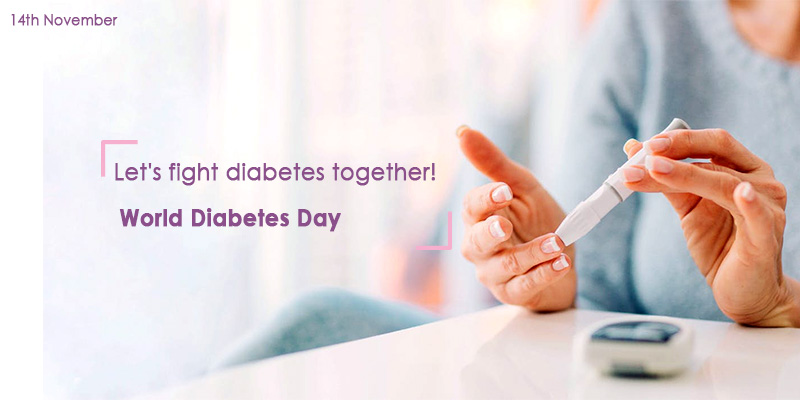
How Does Diabetes Affect Male Fertility?

Diabetes causes high levels of sugar (explicitly, a sugar called glucose) in your blood. Insulin is the hormone that brings down your glucose levels. Diabetes happens or occurs when the pancreas (the organ that makes insulin), cannot produce insulin, or when your body does not respond to insulin. The glucose levels begin to rise if there ‘isn’t enough insulin in the body, at the point which, it starts to trigger diabetes.
If you have diabetes, you will be likely to have a higher possibility of being prone to sexual and regenerative medical issues. Some of the male infertility conditions that diabetes leads to are:
- Erectile dysfunction
- Retrograde ejaculation
- Retarded ejaculation (delayed ejaculation)
- Hypogonadism (low testosterone)
- Reduced sperm quality
1. Erectile Dysfunction (ED)
This is a common issue that arises due to diabetes and leads to difficulty in getting or maintaining an erection.
Erectile Dysfunction is caused by reduced blood circulation and nerve damage, essentially as a result of less controlled or long-standing diabetes. Blood pressure, high levels of blood glucose, and cholesterol, all lead to difficulties in an erection.
Bringing these under control, quitting smoking, and reducing alcohol consumption may help in lowering ED effects. There are also medical treatments available that can be consulted with your doctor.
2. Retrograde Ejaculation
Retrograde Ejaculation is another condition that may result from autonomic neuropathy. This happens when the nerves lose control of the bladder muscles from closing at the point of ejaculation. This results in semen entering the bladder instead of exiting from the penis. However, it does not cause health issues but can harm conception. If you are looking to conceive, you can still collect sperm and use it via Assisted Reproductive Technology (ART).
3. Retarded Ejaculation/ Delayed Ejaculation
Damaged nerves in the penis is also another cause of ejaculation problem. One of the main problems is a lack of nerve sensitivity. Impaired, delayed, and retarded are some of the terms used to describe difficulty in ejaculation.
Besides, age, psychological problems, and certain medications also influence retarded ejaculation. If impaired ejaculation is a result of psychological problems, then consulting a psychosexual therapist for treatment is an option.
Other medical procedures for treating this condition include IVF through ART, which can help in treating infertility if conception through intercourse is not possible.
4. Hypogonadism (Low Testosterone)
Low testosterone (or testosterone insufficiency) is the point at which your body can’t make enough testosterone to work regularly. Testosterone is an important hormone that is significant for typical regenerative and sexual capacity.
Luteinizing hormone (or LH) from cerebrum helps testis produce testosterone. The abnormal amounts of glucose in men with diabetes can affect the measure of LH that the mind discharges, which implies that the Testis cannot make enough testosterone.
Studies show that around 1 in 4 men having Type 2 diabetes have low testosterone levels or medically known as, hypogonadism. Low testosterone levels can cause problems which can reduce fertility such as erectile dysfunction, low sperm count, and decreased sex drive.
Testosterone replacement treatment can be given in multiple ways, including by injection, capsules, and implants.
5. Reduced Sperm Quality
Diabetes reduces the quality of the sperm but does not affect sperm motility or cause infertility. However, the evidence is inconclusive on diabetes affecting sperm motility, but obesity is known to be associated with a reduction in sperm quality.
Oasis is a ‘one-stop’ single-day care center where discussion, examination, and treatment are dealt within a single day. So, live your dream of being a parent, by getting your infertility condition treated under the expert doctors at Oasis. It recognizes couples’ need for an approach that is both competent and compassionate.


fill up the form to get a
Free Consultation
Avail 0% interest on EMI
All Procedures | No Upper Limit
How we reviewed this article:
- Current Version
- August 24, 2022 by Oasis Fertility
- November 7, 2019 by ShootOrder




